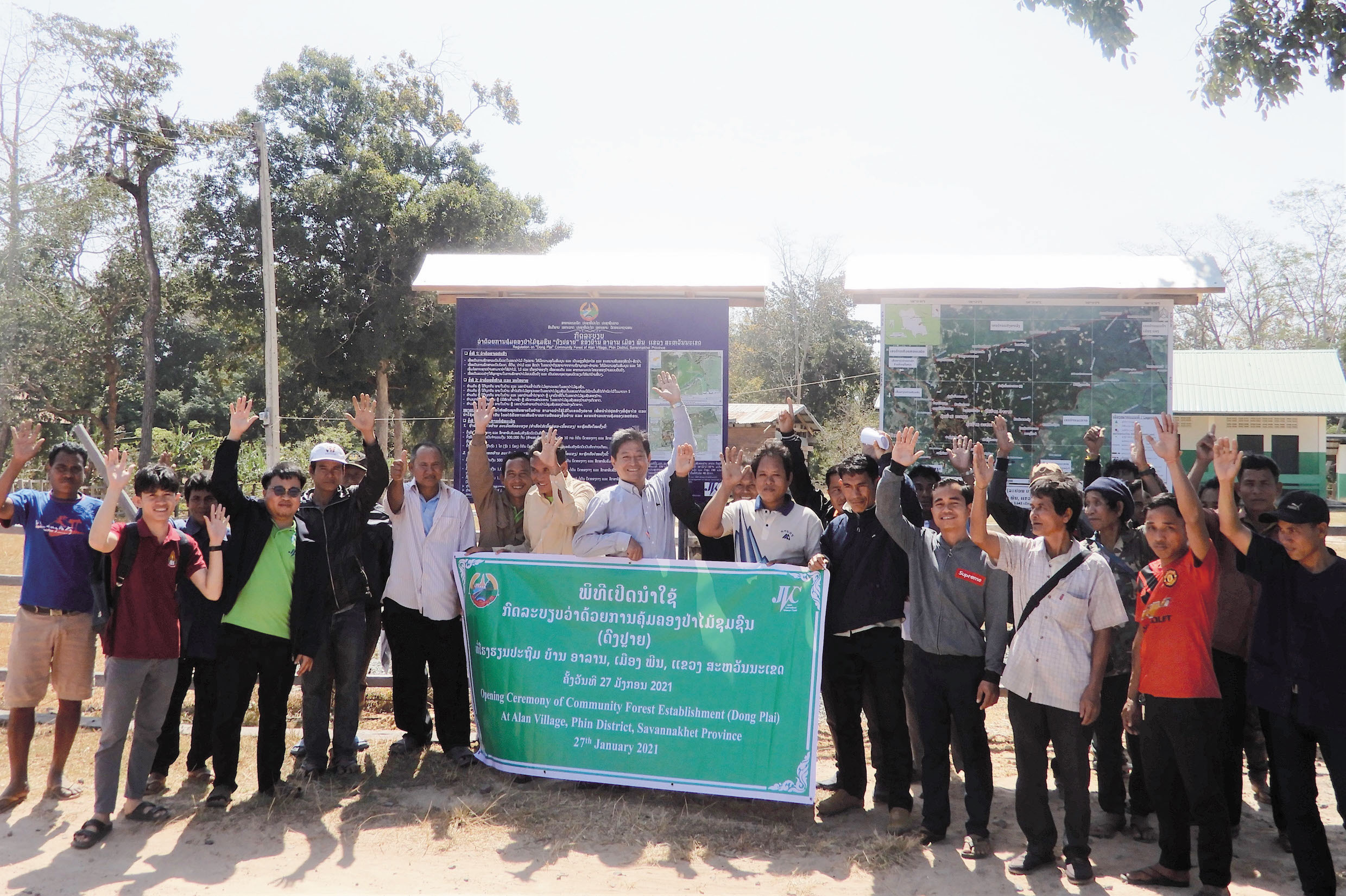
Establishment ceremony for a community forest
Program Background
Many people in Laos live in rural areas and make a living by farming and gathering mushrooms, fishes and so on from surrounding forests and rivers. On the other hand, large-scale development projects such as the construction of hydroelectric power dams and plantations are causing unjust land expropriation and environmental destruction, creating a negative impact on the local people. Also, the locals themselves are expanding the cultivation of cash crops until they realize in the end that they have lost their common forest. In order to support the stable life of local people in villages, we are providing agricultural techniques trainings for better livelihood and work for the management and sustainable use of natural resources with people in rural areas.
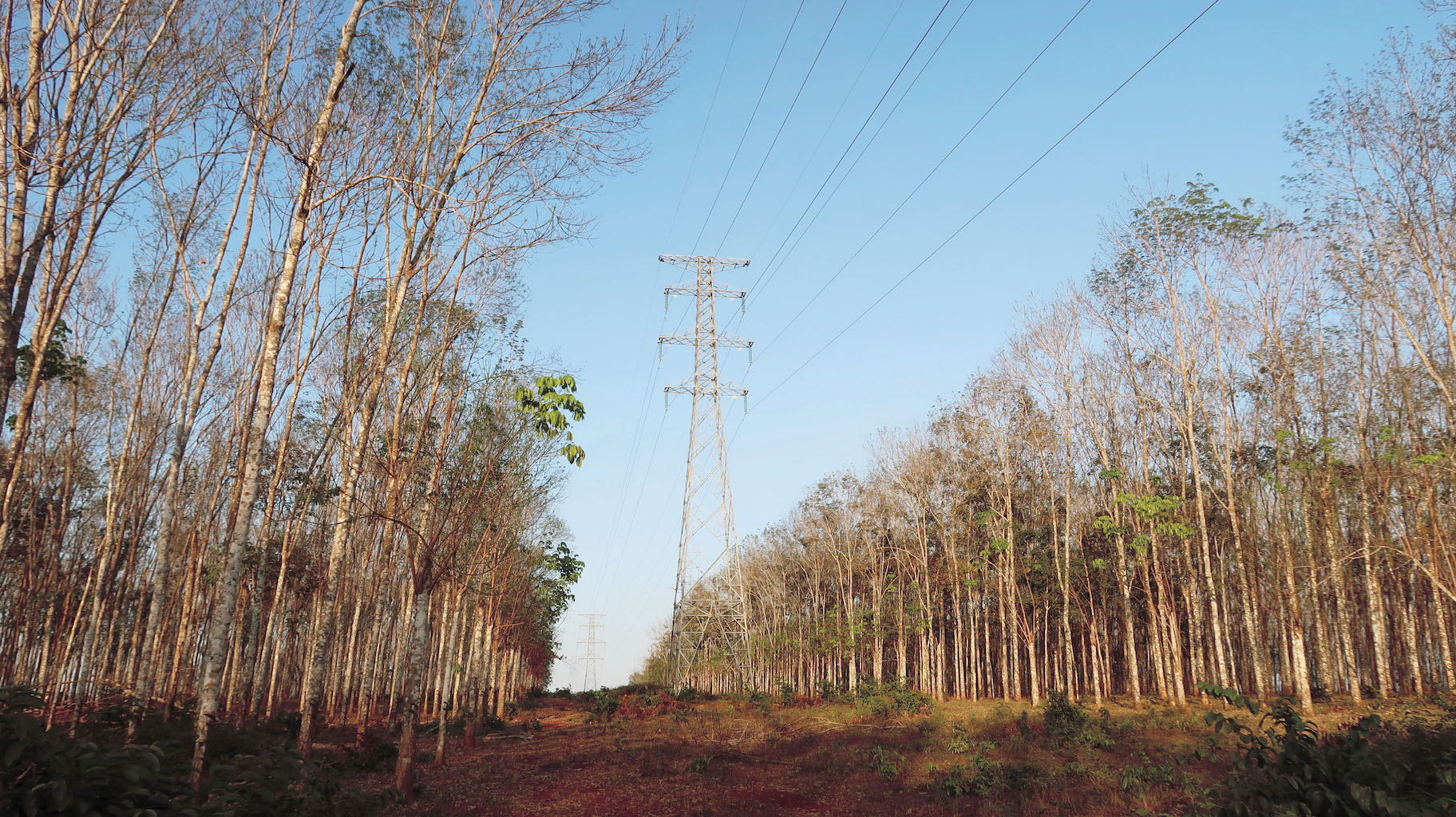
Rubber plantation and transmission lines for a hydroelectric dam
Stories from Our Activities
Mr. Thomthip (50s), the head of Nalaikhok village, said: “The fish in our river have decreased in the past 20 years because many villagers catch and sell fish. There was a fish conservation zone from before, but it was just a mutual agreement among villagers. Together with JVC, we made regulations, documents, and signboards to indicate the conservation zone. By utilizing them, we can explain about fish conservation to people from other areas and our younger generations. So far, we have not seen any violation of the prohibition rule, and I am confident about the management. JVC staff, including those all the way from Japan, came to us and supported many groups in our village even when it rained or when it was extremely hot. There was no such project in the past. JVC gave us not only resources but also knowledge which helped us learn very much.”
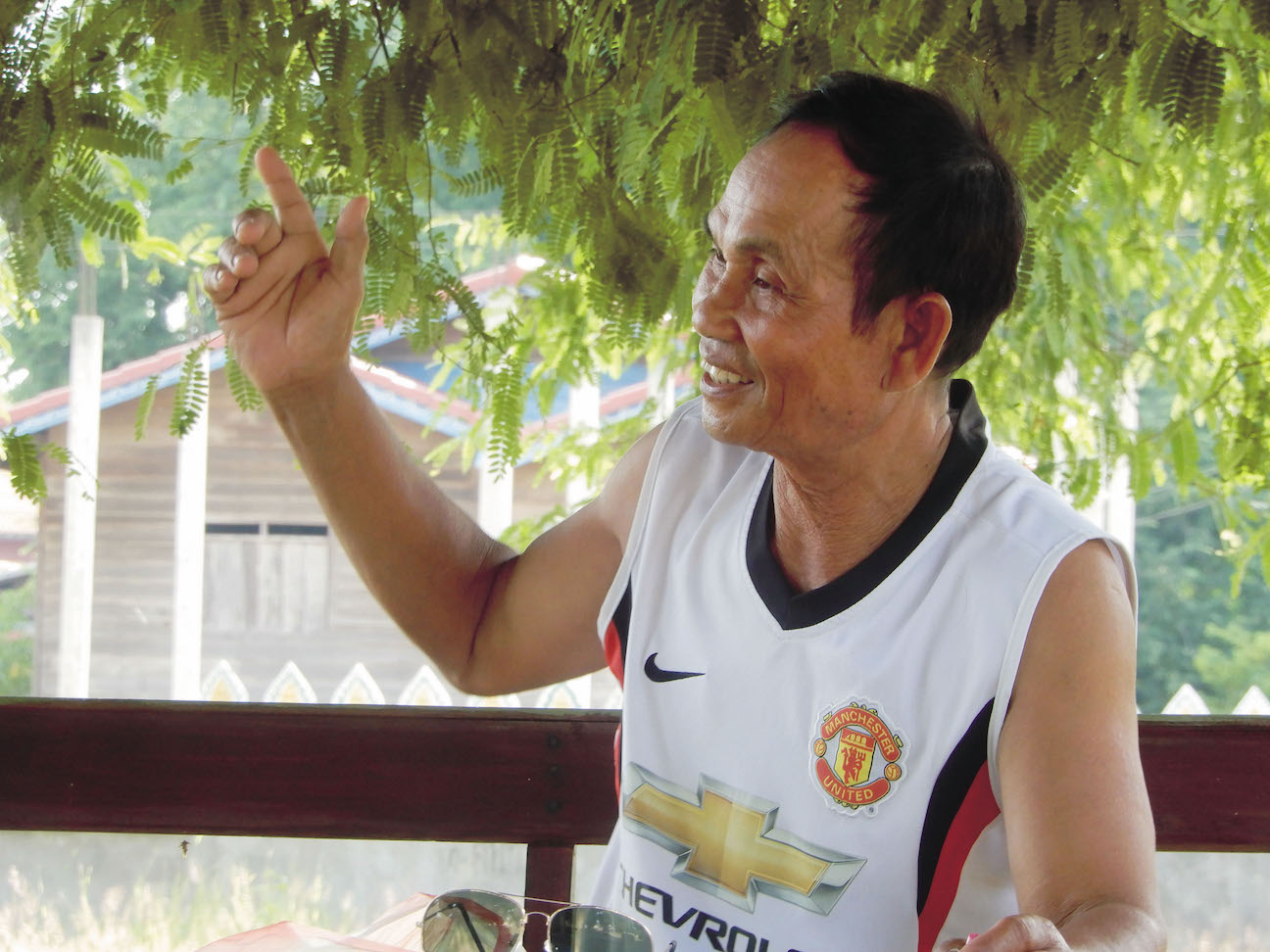
Mr. Thomthip talking about the status of the regulation on the fish protection area
Supporting independent management and use of natural resources
Outline of Activities
We established two community forests and four fish conservation zones in our ten project villages. We monitored and confirmed that the regulations are being implemented without any problems. We also handed out booklets containing information on the village boundaries and the history of the three villages. We attended meetings of local network organizations and helped them to decide the content of a legal calendar, which disseminates legal knowledge during legal training.
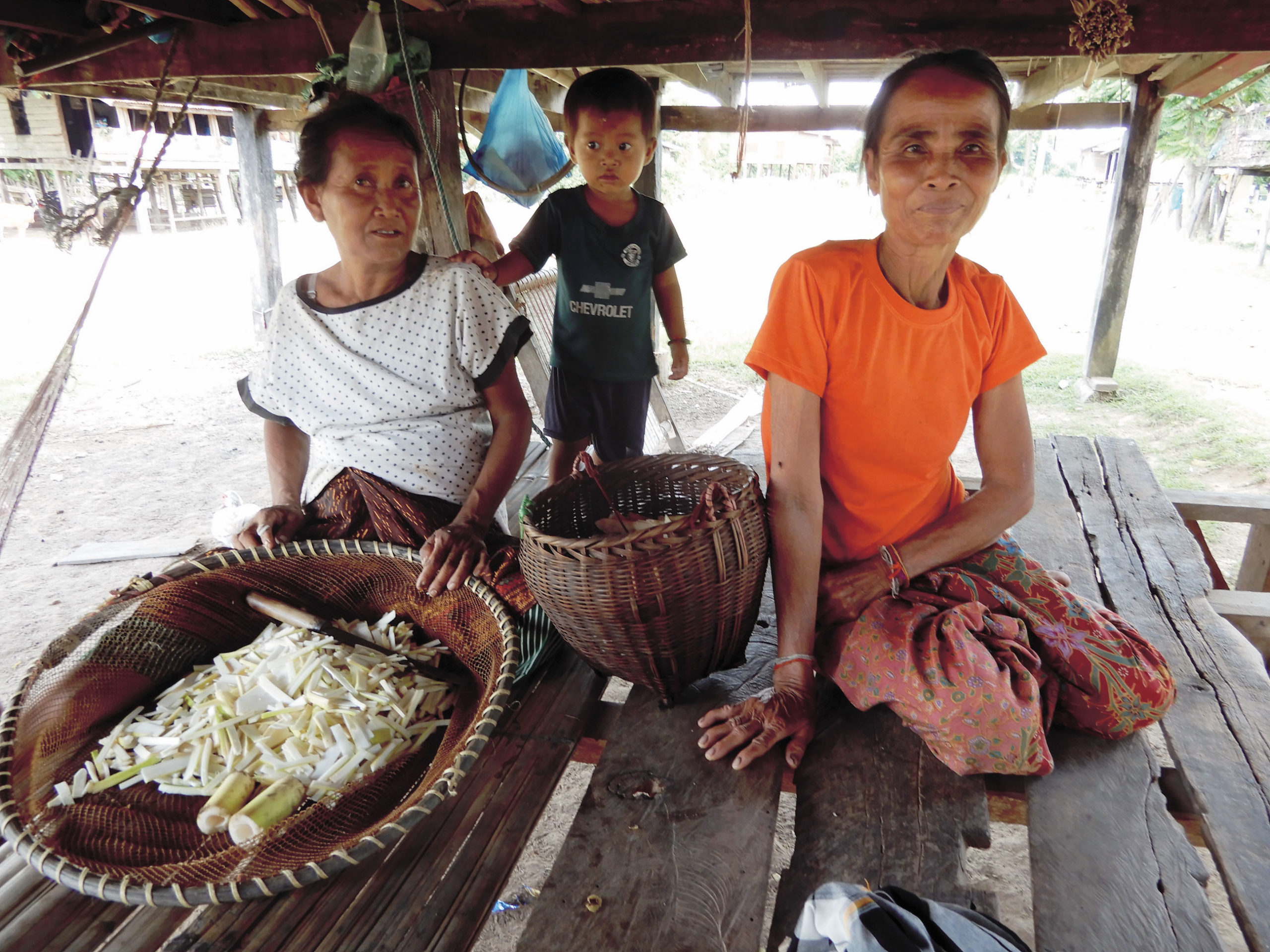
A family preparing to cook naturally grown bamboo shoots
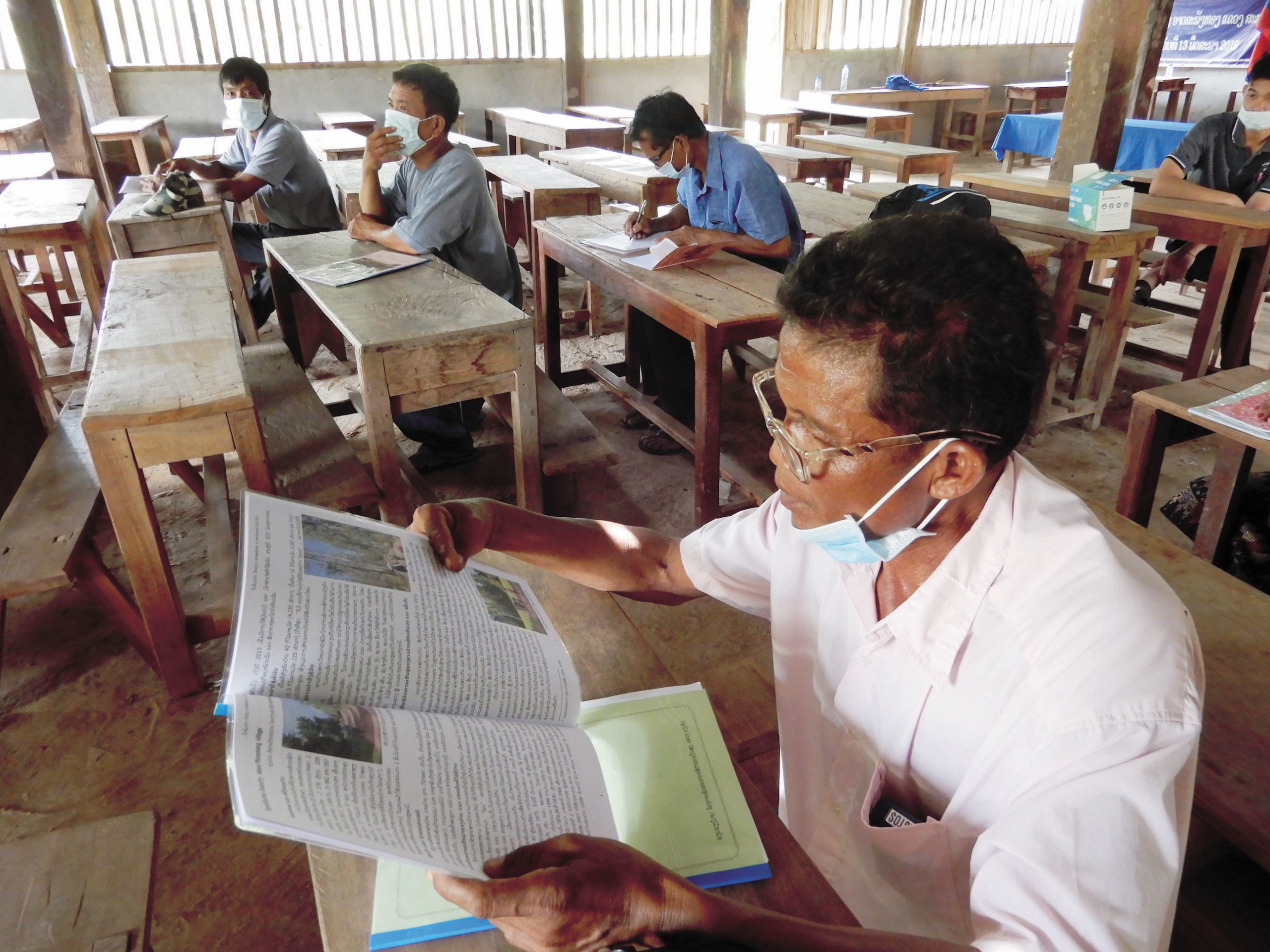
A villager reading a booklet on village data
Observed Changes
The community forests and fish conservation zones are operated well by the villagers, and it has become easier for them to avoid troubles such as unfair land expropriation and overfishing. The management of natural resources will be continued by the villagers and local administration. As for the legal calendar, we suggested several points referring to the examples from our project sites. For example, in the case of development, it is important to disseminate adequate information beforehand and get a consensus from the villagers based on their free will, to let villagers participate in the decision-making process about the use of land by the government and investors, and to enable villagers to lobby the administration to obtain land certificates based on the customary use of land. These points were adopted in the calendar.
List of Village Data Book ລາຍຊື່ປື້ມຂໍ້ມູນບ້ານ
| No. ລຳດັບ | Village ບ້ານ | District ເມືອງ | Province ແຂວງ | Year Published ປີຈັດພີມ | Download Link for Image File (PDF) ລິງໄຟລພາບປຶ້ມ | Remark ໝາຍເຫດ |
|---|---|---|---|---|---|---|
| 01 | Nalaikhok ນາໄລ່ໂຄກ | Atsaphangthong ອາດສະພັງທອງ | Savannakhet ສະຫວັນນະເຂດ | 2020 | Normal Resolution ລະອຽດທໍາມະດາ High Reso Map Ver. ສະບັບແຜນທີ່ລະອຽດສູງ | including documents of 2 fish conservation zones ມີເອກະສານວັງສະຫງວນ 2 ແຫ່ງ |
| 02 | Houaysing ຫ້ວຍສິງ | Phin ພີນ | Savannakhet ສະຫວັນນະເຂດ | 2020 | Normal Resolution ລະອຽດທໍາມະດາ High Reso Map Ver. ສະບັບແຜນທີ່ລະອຽດສູງ | including documents of 1 fish conservation zone ມີເອກະສານວັງສະຫງວນ 1 ແຫ່ງ |
| 03 | Nonhang ໂນນຮັງ | Atsaphangthong ອາດສະພັງທອງ | Savannakhet ສະຫວັນນະເຂດ | 2020 | Normal Resolution ລະອຽດທໍາມະດາ High Reso Map Ver. ສະບັບແຜນທີ່ລະອຽດສູງ | including documents of 1 community forest ມີເອກະສານປ່າໄມ້ຊຸມຊົນ 1 ແຫ່ງ |
| 04 | Kaengxai ແກ້ງໄຊ | Phin ພີນ | Savannakhet ສະຫວັນນະເຂດ | 2021 | Normal Resolution ລະອຽດທໍາມະດາ High Reso Map Ver. ສະບັບແຜນທີ່ລະອຽດສູງ | including documents of 1 fish conservation zone ມີເອກະສານວັງສະຫງວນ 1 ແຫ່ງ |
| 05 | Nalaidong ນາໄລ່ດົງ | Atsaphangthong ອາດສະພັງທອງ | Savannakhet ສະຫວັນນະເຂດ | 2021 | Normal Resolution ລະອຽດທໍາມະດາ High Reso Map Ver. ສະບັບແຜນທີ່ລະອຽດສູງ | |
| 06 | Paxia ປະເຊັຍ | Phin ພີນ | Savannakhet ສະຫວັນນະເຂດ | 2021 | Normal Resolution ລະອຽດທໍາມະດາ High Reso Map Ver. ສະບັບແຜນທີ່ລະອຽດສູງ | including documents of 1 fish conservation zone ມີເອກະສານວັງສະຫງວນ 1 ແຫ່ງ |
| 07 | Alan ອາລານ | Phin ພີນ | Savannakhet ສະຫວັນນະເຂດ | 2021 | Normal Resolution ລະອຽດທໍາມະດາ High Reso Map Ver. ສະບັບແຜນທີ່ລະອຽດສູງ | including documents of 1 community forest ມີເອກະສານປ່າໄມ້ຊຸມຊົນ 1 ແຫ່ງ |
| 08 | Houay ຫ້ວຍ | Atsaphangthong ອາດສະພັງທອງ | Savannakhet ສະຫວັນນະເຂດ | 2021 | Normal Resolution ລະອຽດທໍາມະດາ High Reso Map Ver. ສະບັບແຜນທີ່ລະອຽດສູງ | |
| 09 | Nyang ຍາງ | Phin ພີນ | Savannakhet ສະຫວັນນະເຂດ | 2021 | Normal Resolution ລະອຽດທໍາມະດາ High Reso Map Ver. ສະບັບແຜນທີ່ລະອຽດສູງ | |
| 10 | Phonphang ໂພນຜາງ | Atsaphangthong ອາດສະພັງທອງ | Savannakhet ສະຫວັນນະເຂດ | 2021 | Normal Resolution ລະອຽດທໍາມະດາ High Reso Map Ver. ສະບັບແຜນທີ່ລະອຽດສູງ |
Training on agricultural techniques for better livelihood
Outline of Activities
We monitored the status of the agricultural skills and farm village development activities we taught in the past trainings in ten project villages. We also held additional trainings such as rice cultivation, fruit growing, fixing deep wells, and so on.
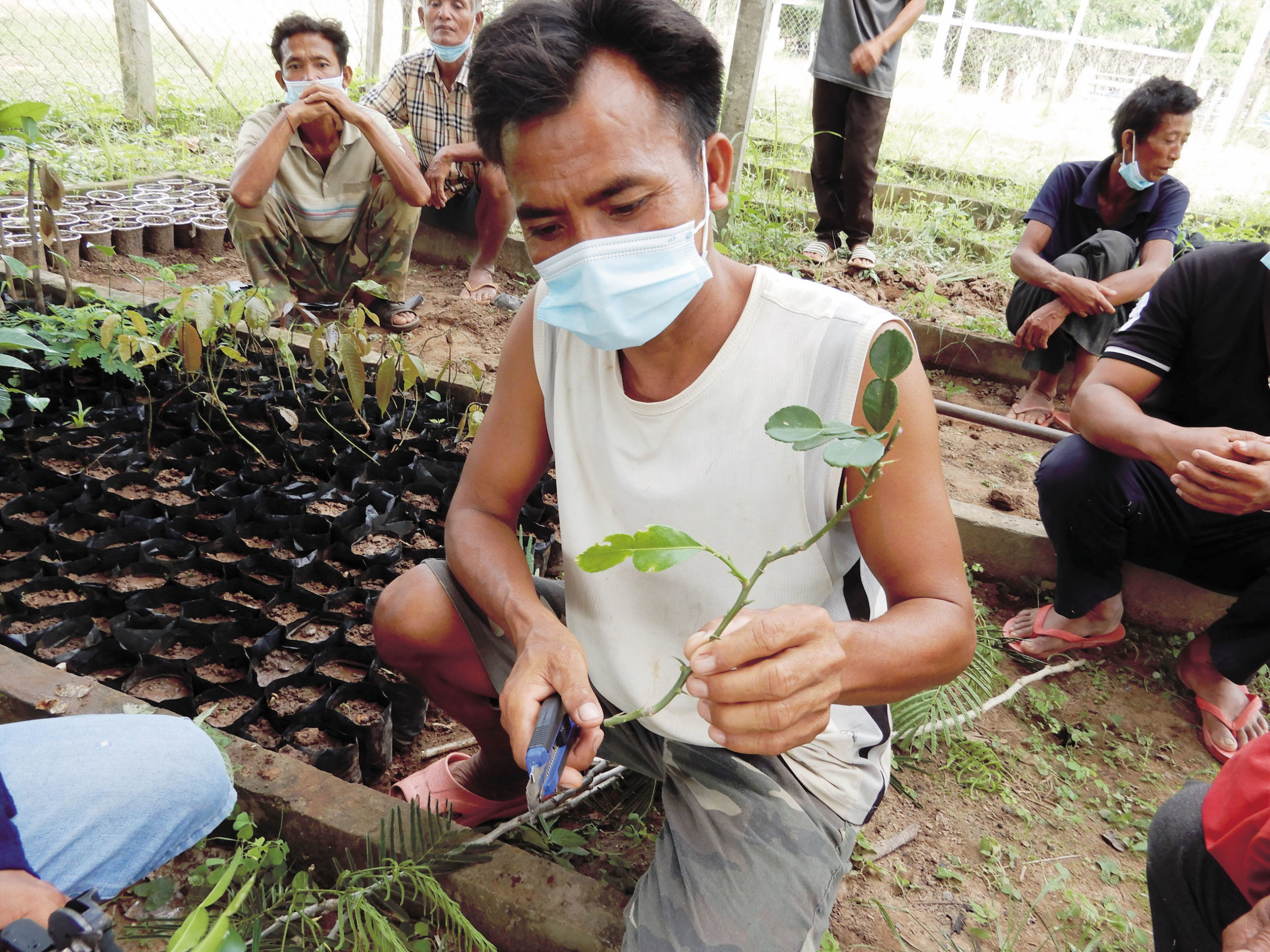
Training on choosing seedlings of fruit trees and permanent planting
Observed changes
More people put the farming techniques that they learned into practice. We found some techniques such as rice cultivation take root and some households actively grow mushrooms and rattan even though they have not received any training. In a village, where mushroom plantation was not common, people used to buy mushrooms from neighboring villages or in a central market, but now they grow their own and even share them with their relatives. In addition, it is expected that common facilities such as reservoirs, wells, and a livestock bank will be maintained and operated by the villagers continuously.
Completion of the project and drafting a new project
We completed the three-and-a-half-year project after handing over the activities to the local authorities and making a final evaluation. After that, we searched for a new project site and decided on drafting a new one in the Sekong province located in Southern Laos.
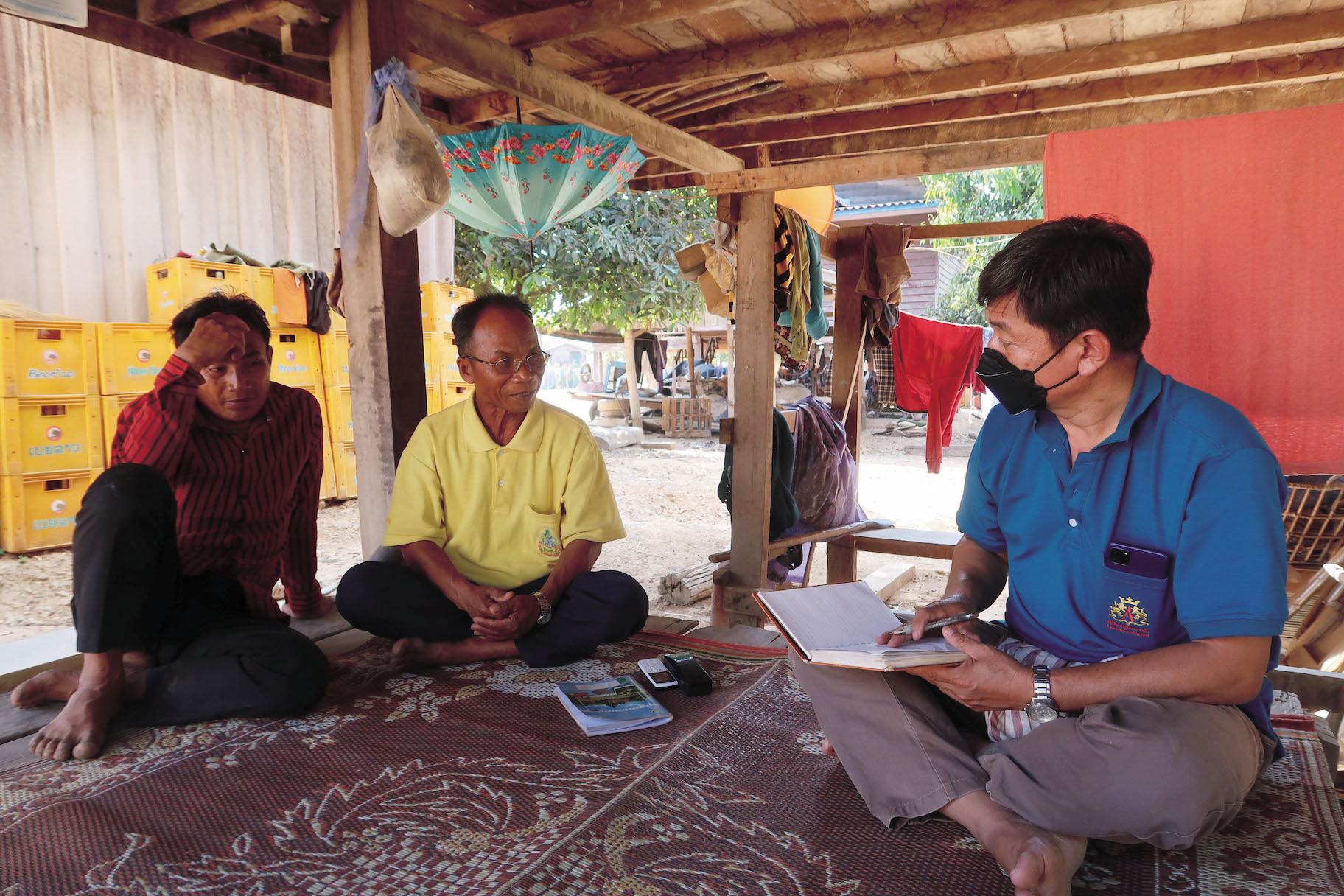
A hearing session on choosing a new project site in the Sekong province
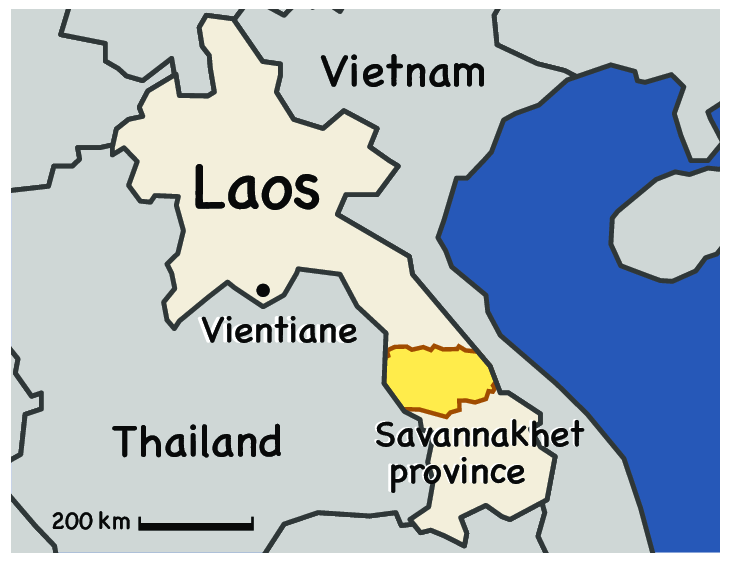
[Source: JVC Annual Report 2021]
Share This: